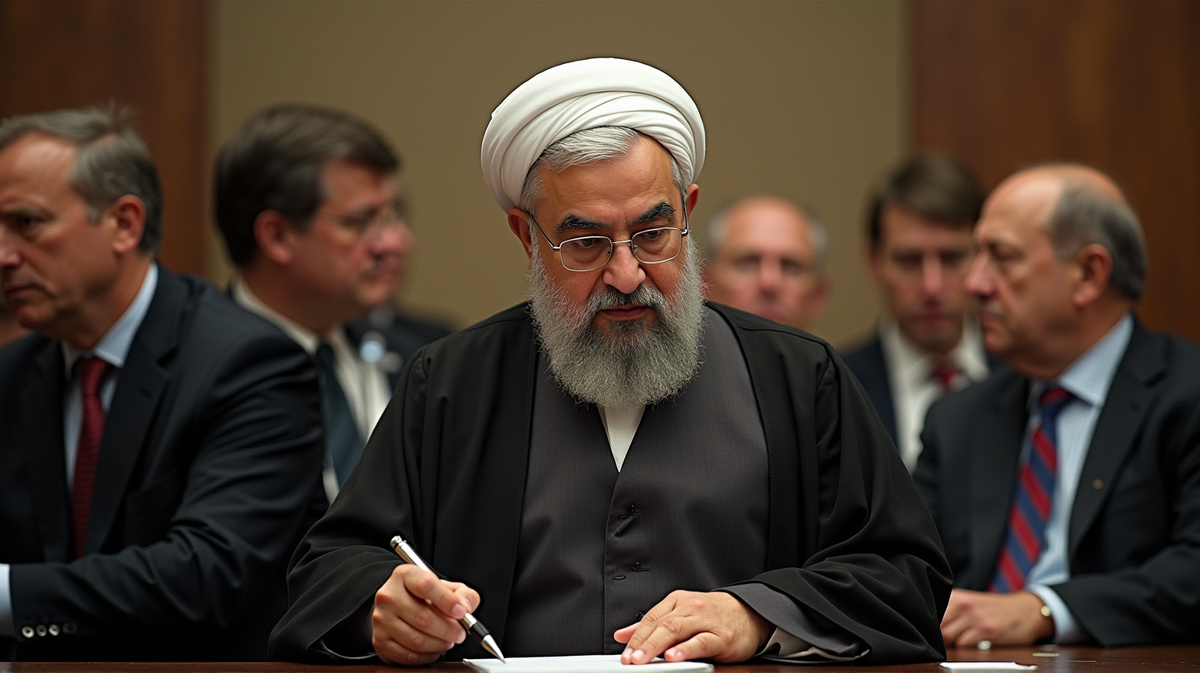Tehran's Intricate Web of Power and Policies on the Brink
Iran's political stage is fraught with internal rifts over ties with Russia, economics, and diplomacy with Washington. Doubts hang over survival of the clerical regime.

In a tale reminiscent of a political drama, the Iranian regime faces a tempest of internal conflicts piercing its very core. According to National Council of Resistance of Iran - NCRI, infighting has become an alarming constant, with stakes high over foreign alliances, economic crises, and its diplomatic dance with Washington. This turmoil heralds an impending clash not just between power-hungry factions but also between contrasting visions for Iran’s future.
Secret Missions or Prelude to Crisis?
Tehran was recently abuzz when Ali Larijani, a towering figure in the regime, embarked on what was supposed to be a routine hinge-diplomatic trip to Moscow. Yet, the trip unleashed speculations of an agenda intertwined with a tele-discussion between Putin and former U.S. President Trump. Could Moscow be the unlikely mediator between Iran and America? This question sets the political scene ablaze, pitching pro- and anti-Russia sentiments against each other.
Clashes in the Shadows: Ideological Dramas
The echoes of dissent don’t stop there. Top-tier figures like Abdollah Haji Sadeghi have revealed cracks in the revolutionary zeal, hinting at an ideological shakedown within the elite ranks of the Islamic Revolutionary Guard Corps. It’s a tension mirrored in parliament, where loudcalls for unfettered independence from Moscow’s grasp gain ground, championed by nationalists like Heshmatollah Falakhteh-Pisheh. They argue for an Iran unchained from Russia’s military narratives, underlining the complexity of international berths amid homegrown ideological rifts.
The Economic Quagmire: Dilemmas Unearthed
As President Masoud Pezeshkian tries to steer the tumultuous waters of leadership with calls for unity amid chaos, Iran’s economic woes unravel into public discourse. His assertion that Iran “sleeps on gold but goes hungry” speaks volumes about a nation shackled by its potentials due to managerial failures and rampant graft. This internal discord over fiscal policies and fuel reforms highlights the deep economic cauldron boiling over with unrest.
Diverging Paths: Survival or Strategic Paralysis?
With public decry over monetary solutions and strategic policy paralysis comes a narrative of rivalry in its purest form. The Iranian drama extends across public platforms—from parliament chatter to heated commentaries—as competing strategies vie for dominance. Will Iran tilt towards accommodation, remain rigid, or reform from within? The stakes are high, and the plot, it seems, is yet unwritten.
Only time will unravel whether these fractures are mere battle scars or signs of political tectonics heralding change. Could the debacles from past strategies force a new chapter in Iranian governance? For now, Tehran remains bustling with debates, its future hanging in the balance amidst rampant rivalries and deep-rooted fears.





